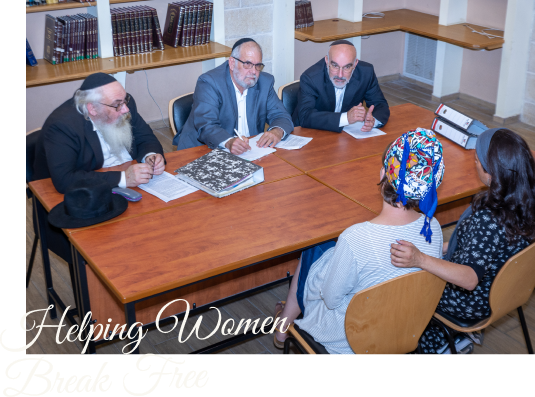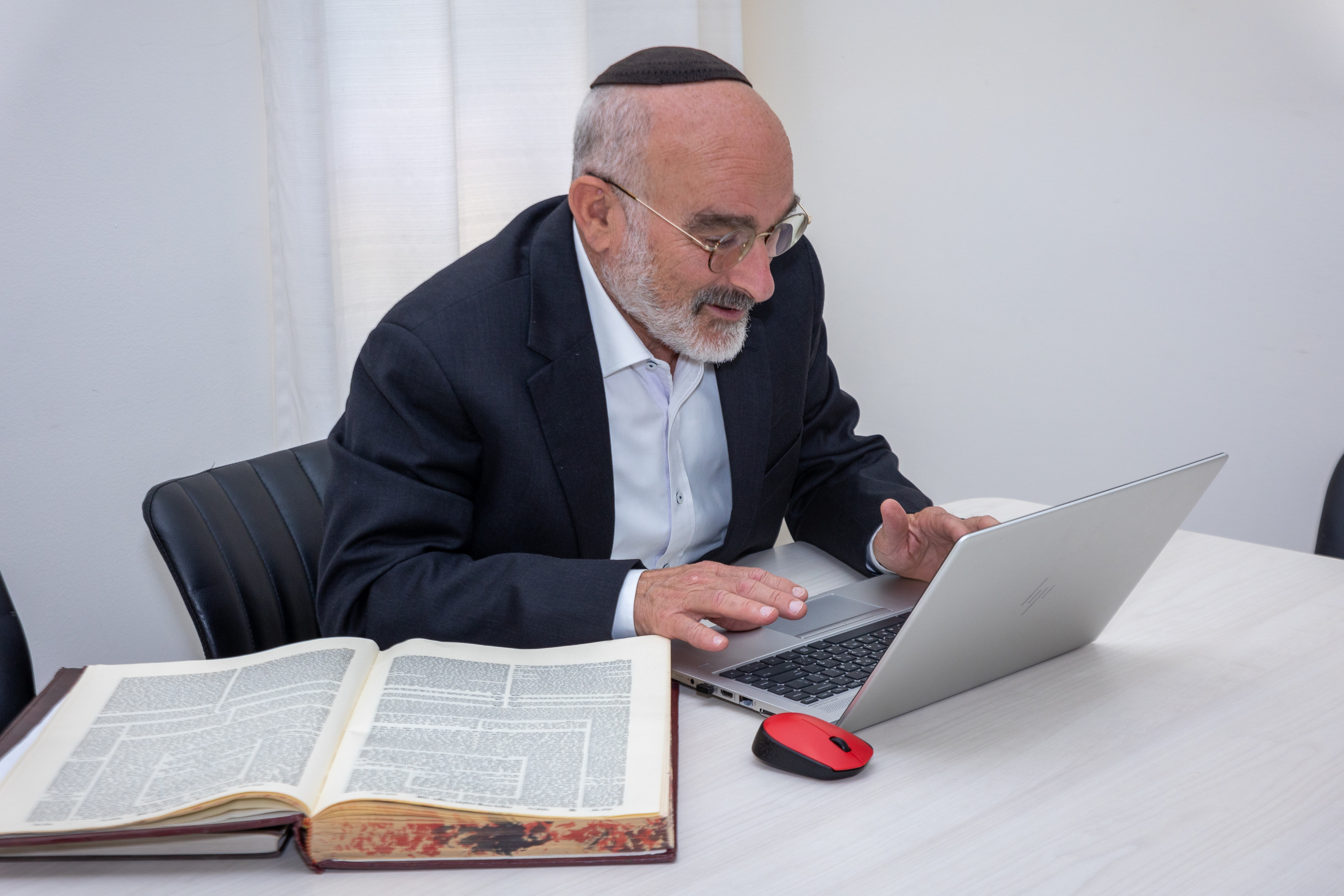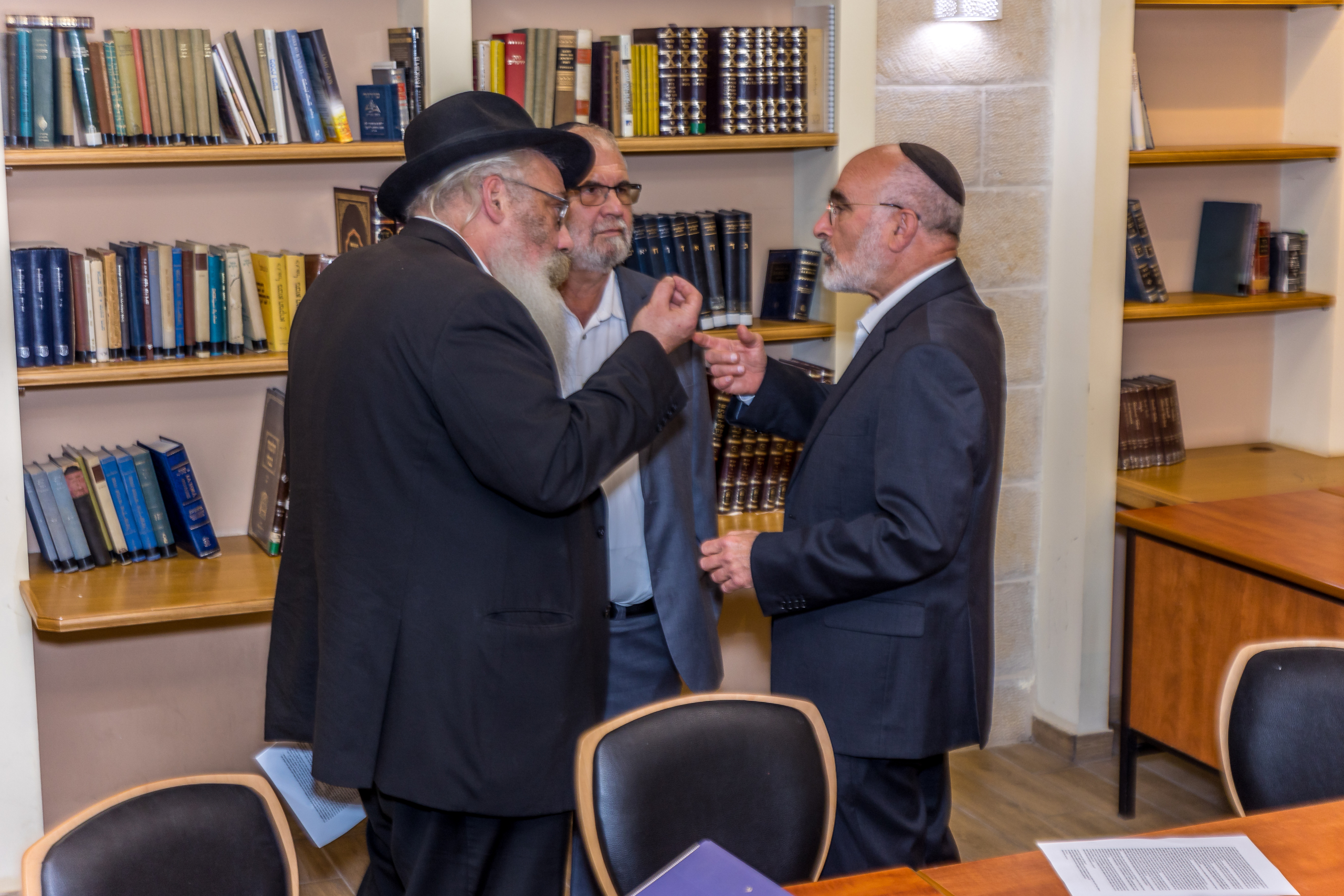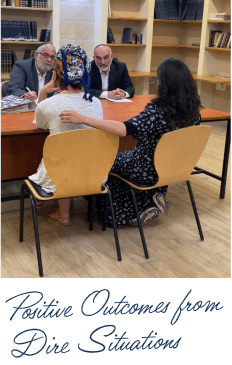Women freed
with Gittin (divorce)
via halachic dissolution of marriage

Untold thousands of Jewish women are agunot, trapped in dead, unwanted marriages against their will; denying a Jewish woman a gett is a cruel form of abuse that is almost always part of a larger pattern of coercive control involving emotional, physical, financial, or sexual abuse. More than that, even more Jewish women go unnoticed by the community as their husbands use the gett as a tool of extortion, conditioning freedom with high costs and untenable conditions.
The dramatic increase in the number of agunot is a recent development and a total perversion of traditional Jewish law and values. It is an overwhelming crisis for those who suffer as agunot and a moral stain on the community as a whole. Jewish law places the highest priority on helping agunot, and we are here to restore the application of classic halachic principles to help agunot.
At the IBD, halacha, justice, and professionalism guide world-renowned experts on gittin and kiddushin as they seek solutions to help leverage gittin and, where halacha permits and no other options remain, declare marriages null and void. We are committed to procedural justice, a fair process where women are heard, and substantive justice, the application of halacha without fear or prejudice.
At the IBD, there is no gett extortion, no conditioning of the gett, and no excuse for gett refusal where halacha mandates it be given.
World-Renowned Experts Our dayanim are world-renowned experts in the laws of Jewish marriage and divorce with decades of experience
Fast Turnaround We do not leave cases unattended & work proactively to resolve them as quickly as possible
We Tackle Any Case Our dayanim do not shy away from difficult cases involving emotional, physical, sexual, financial, or other forms of abuse
Fast Response Time Our average response time to emails and phone calls is 48 hours
No Charge Our services are free of charge
Halachic Rulings We issue formal halachic rulings (chiyuvei gett) obligating spouses to give and receive a gett when halachically appropriate
Expert Female Psychological Support Staff Every client is afforded trained female professional support staff to guide them through the process
Halachic Methods We use any and all applicable legitimate halachic methods to end a marriage
No Blackmail Policy We do not entertain or tolerate extortion or blackmail.
International Network We have an international network of leading Orthodox rabbis with whom we work closely to resolve cases











We employ classic halachic methods that have been used for millennia, from the Rishonim through the Acharonim, to free agunot
The International Beit Din is grounded in classical Halacha; our dayanim are not only first-rate talmidei chachamim with expertise in gittin & kiddushin but also have the real world experience that comes from decades of service. Contrary to popular misconceptions, our methodologies are not “new” or “untraditional.”
Rather, they are based soundly in halachic precedent from leading poskim, including Rav Gedalia Dov Schwartz zt’l, Rav Moshe Feinstein
zt’l, and leading Israeli dayanim. In reality, the traditional approach was always to leave no stone unturned, relying on communal pressure and sound rabbinic leadership to free each and every agunah. Read more
We offer support!
If you’re looking to remarry or need further explanation of your pesak din, we are here for you. We can arrange a mesader kedushin and would be happy to discuss the meaning and basis of your pesak din with anyone you need us to.
Our process is methodical and ordered. First, we send out hazmanot (summonses) in all cases where a divorce is requested by either party; we do not play favorites or refuse to send summonses for any reason. Next, we determine whether there are sufficient grounds to obligate the giving of a gett in Jewish law. This is particularly significant because, when a gett is obligated, it makes conditioning of a gett illegal in Jewish law and allows the community to see the nature of the recalcitrance unambiguously.
Then, if efforts to pressure a recalcitrant husband to fulfill this obligation are not successful (often they are), there is a separate determination made as to whether there are grounds to void the marriage.
The process is recorded and all rulings are memorialized in a written p’sak din delineating the sources and the reasoning upon which the ruling is made

